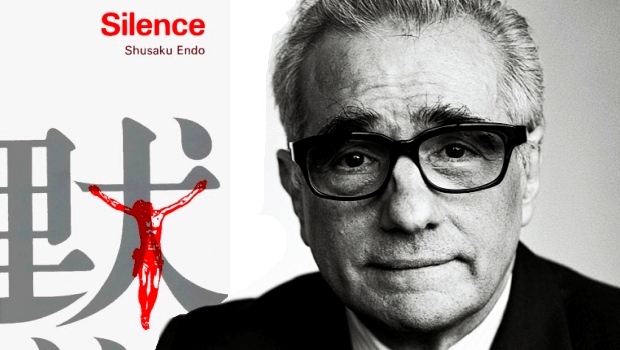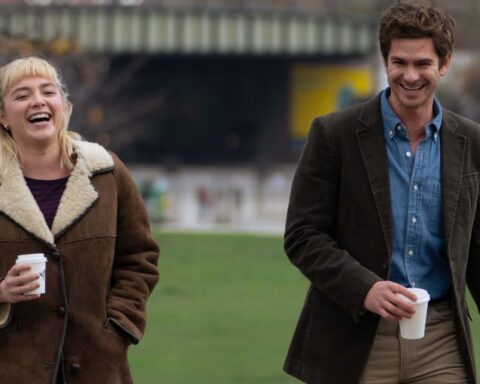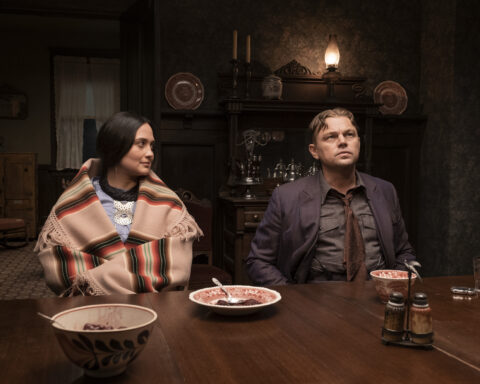Martin Scorsese plans to shoot his Japanese movie “Silence” in Taiwan rather than in Japan where the novel it is adapted from is based, after seeing what Taiwanese director Ang Lee was able to accomplish there with Oscar-winner “Life of Pi.”
Although the film is based on an obscure 1966 Japanese novel that tells the story of a hapless Jesuit missionary trying in vain to introduce Christianity to Buddhist and Shinto Japan in the 1600s, Scorcese has already scouted locations in Taiwan after getting a welcoming green light from Lee. One of Scorcese’s executive producers already spent a long week in Taiwan scouting locations around the island nation.
The Japanese author who penned the novel was a Catholic in the Buddhist and Shinto nation, and “Silence” — titled ”Chin-mo-ku” in Japanese — tells the tale of a Jesuit missionary who faced severe prejudice and persecution at that time in Japan’s history. However, while the film adaption of the Japanese novel will be shot in Taiwan, the movie will be released as a Japanese-language film with Japanese dialog dubbed in in post-production.
Andrew Garfield and Ken Watanabe have been cast in the movie, according to industry sources. Scorcese went to Cannes to sell “Silence” — a personal pet project still in development after 23 years of gestation — to foreign buyers, and he’s ready to roll on the project he started in 1989. Taipei City and the surrounding countryside will serve as the principal photography locations and Taiwanese film officials, already happy with the global publicity that native son Lee’s ”Life of Pi” brought in, are more than welcoming to Scorcese’s plans, according to local media here.
While Taiwan is not Japan, Taiwan was a colony of Japan for 50 years from 1895 to 1945 and much of the country still retains many areas and buildings that look like they belong right in the middle of old Tokyo. Scorcese apparently got the idea to shoot the movie in Taiwan after personally conferring with Lee and getting his personal recommendation. Scorsese said Lee recommended that he seriously consider thinking about shooting “Silence” in Taiwan when the two men chatted after attending a screening Scorcese’s ”Hugo” three years ago.
Lee was in the middle of filming “Life of Pi” at the time and had nothing but good things to say about the crews and government officials he was working with in his native land. Scorcese listened, and after “Pi” won an Oscar for Lee in early 2013, he made his decision to film in Taiwan, too.
The late Japanese novelist Endo (1923 – 1996) was a Catholic in mostly Buddhist and Shinto Japan, and felt the sting of prejudice himself. The novel, which won the 1966 Tanizaki Prize in Tokyo but never travelled much outside Japan, is partly written as a letter by a foreign missionary who questions and yet revels in the existence of a Christian God. Critics in Japan have said that the theme of ”a silent God” who supports a Jesuit in adversity was greatly influenced by the Endo’s own personal experience of religious discrimination in Japan.
Scorcese, who is (a lapsed) Catholic himself, has long been fascinated by the Christian religious impulse and vocation, as seen in his 1988 Paul Schrader-scripted ”The Last Temptation of Christ,” is no stranger to arguing with God. “Christ” was based on the Greek writer Nikos Kazantzakis’s 1960 novel which spoke of the life of Christ in human terms rather than traditional divine terms.
So expect “Silence” to continue Scorcese’s dialogs with God, hidden or not.








Calling Endo’s novel obscure is laughable. It’s been translated into numerous languages and was already made into a film by Shinoda Masahiro